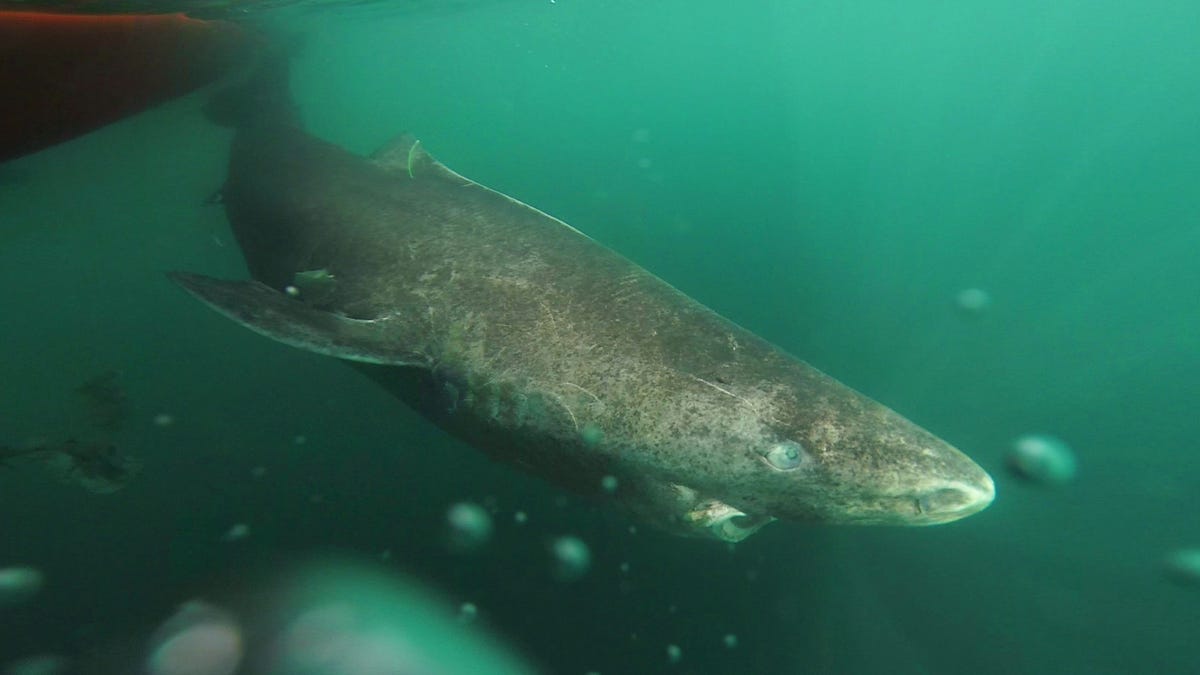400-year-old shark sets record for vertebrate longevity
A large, slow-swimming shark achieves a mind-boggling age for a vertebrate as scientists unravel the mysteries of its impressive lifespan.
Great whites get all the attention, but there are a lot of other sharks in the water. You may not have heard of a Greenland shark before. Sometimes it goes by "gurry shark" or "grey shark." Greenland sharks live in the North Atlantic and have mottled skin that makes it look they are carved from marble. They are also the reigning champions of vertebrate longevity.
Scientists worked out a method for determining the age of Greenland sharks and discovered one that is nearly four centuries old. A 400-year-old shark isn't too insane once you realize the ocean creatures don't even reach full maturity until the age of 150.
A team of marine biologists led by scientists at the University of Copenhagen published their findings in the journal Science under the title "Eye lens radiocarbon reveals centuries of longevity in the Greenland shark (Somniosus microcephalus)." The paper concludes that "our results show that the Greenland shark is the longest-lived vertebrate known."
The researchers used radiocarbon dating of the sharks' eye lenses to determine the age of 28 different female subjects. The normal lifespan for these sharks may be at least 272 years, but the oldest shark in the group clocked in at around 400. Radiocarbon dating isn't an exact science, so there's some fudge factor to that number. The possible age range for the shark is between 272 and 512 years, so the researchers settled for a number in the middle of that swing.
"Because the center of the lens does not change from the time of a shark's birth, it allows the tissue's chemical composition to reveal a shark's age. We use well-established radiocarbon methods, but combine them in a new way. This approach, along with the extraordinary ages for these sharks makes this study highly unusual," said University of Copenhagen Ph.D. student Julius Nielsen.
Greenland sharks are in good company with other long-living creatures. Earlier this year, we met a 30-year-old cat named Scooter and an 184-year-old tortoise, which just got its first human-powered bath. After all, age is just a number, as Wisdom, the oldest known wild bird, and her baby can attest to.


